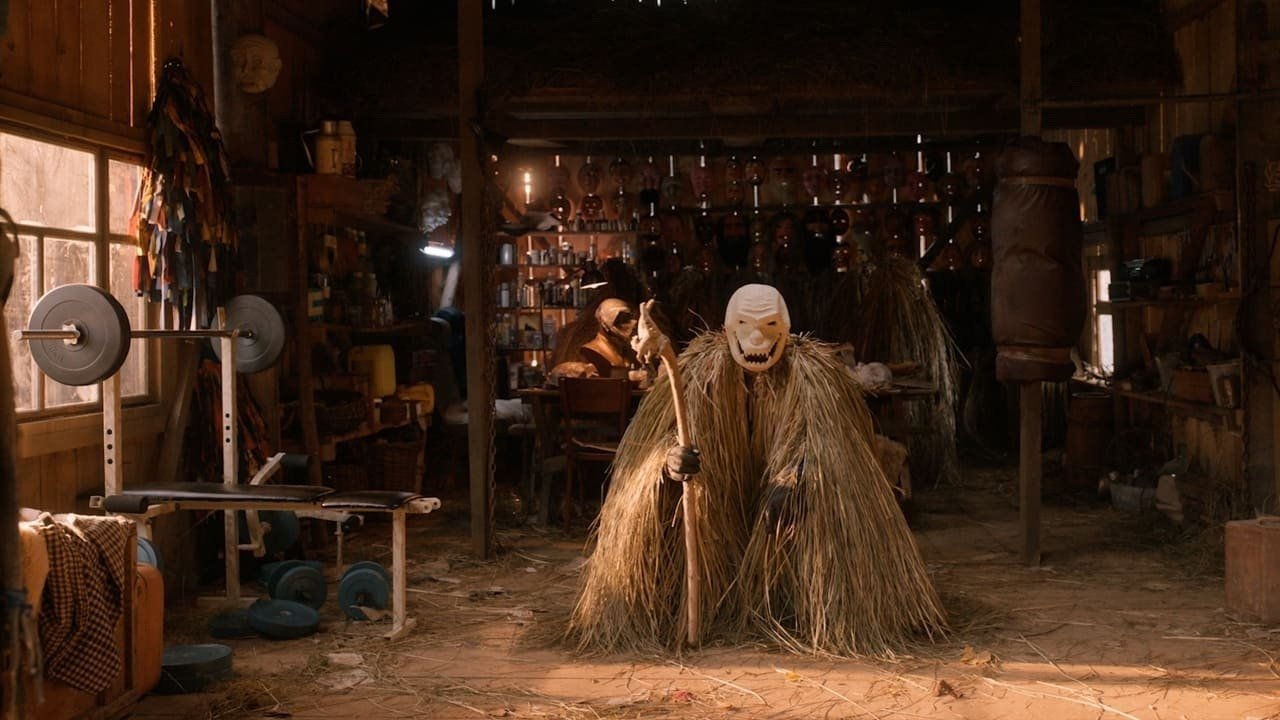Pamfir
Conic FilmPamfir, directed by Dmytro Sukholytkyy-Sobchuk in his feature debut, is a film about a man with a past. Leonid is his name (Oleksandr Yatsentyuk) but he is known as the titular Pamfir. He’s an ex-smuggler, a reformed criminal, a husband and a father. He carries the weight of the world on his shoulders and the camera captures every second of this struggle. However, the film itself goes quite a bit beyond the parameters set by the expectations of the narrative and attempts to expose the viewer to the cultural richness of its creator’s country of origin.
Therefore, Pamfir is perhaps best summarized as a collage of artistic inspirations drawn from all places. It is equally a solemn neo-noir, a heightened fairytale, and a coming-of-age story where the camera is trained almost exclusively on the titular character who bends over backwards to provide for his family, be a father figure to his adolescent son Nazar (Stanislav Potiak) and a loving support to his wife Olena (Solomiya Kyrylova), all in spite of the sinister forces of the universe pulling him either back to a life of crime or away from his homestead to earn a living abroad. Sukholytkyy-Sobchuk captures this push-pull mechanic with requisite aptitude and imbues the entire movie with a kind of energy found in storytelling often labelled as dark fantasy.
Consequently, this movie requires the viewer to open up a little bit and allow Pamfir to wash over them, as strictly following the meandering camera and making logical connections – while possible – may not be the best course of action. Pamfir is to be experienced in the moment and rationalized later. Only then will the viewer be allowed into Leonid’s headspace where he lives organically through the horror of his sacrifice for the family he so desperately tries to keep afloat. Moreover, only then will it be possible to make logical sense of the emotional vortex of chaos this movie serves under its seemingly artistically controlled guise. Finally, only then will the viewer realize the extent of allegorical functionality Pamfir clearly operates with. Because Pamfir is not a film about Ukraine because it describes Ukraine. Pamfir is a film about Ukraine because the character of Pamfir is Ukraine, anthropomorphized.
When viewed through the lens of an allegorical interpretation, this entire film gains not only new colours but also momentum, depth, and prowess. Suddenly, its seeming narrative indeciveness makes a bit more sense as it clearly contextualizes the internal conflict the filmmaker’s home country has been experiencing in recent years and educates the viewer using cinematic language to the best of its ability. Pamfir’s Ukraine is a country of contradictions, colour, brutish conflict, honest ambition, immense pride, and longing to bridge the attachment to the country’s ancient roots with its aspiration to join the modern world and enjoy its riches. Naturally, this violent process is accurately depicted in the film as Leonid’s journey is nothing short of harrowing. It is a veritable downward spiral to the depths of hellish sacrifice, all for a flimsy promise of maybe one day seeing his progeny – or his progeny’s progeny – thrive.
It is a truly fascinating film that can only grow in the hearts and minds of those who saw it. While it is not the easiest to watch, owing to its disjointed nature and seemingly haphazard makeup – which only after the credits roll begins to fall into place and make thematic and logical sense – Pamfir is most definitely not to be missed. Its colourful palette and a densely packed narrative forge a veritable onslaught which overwhelms with its passion and – while disarming the viewer’s emotional defences – penetrates the mind and leaves a handful of perpetually lasting impressions destined to elevate their perception and appreciation of Ukraine as a melting pot of cultures on a painful journey towards full-scale self-actualization as a modern nation. And Sukholytkyy-Sobchuk's Pamfir encapsulates these horrific growing pains with an adequate loving embrace of someone who wishes the world could see his country without a filter of politically charged labels, prejudiced opinions and intergenerational burdens of historical martyrdom.


